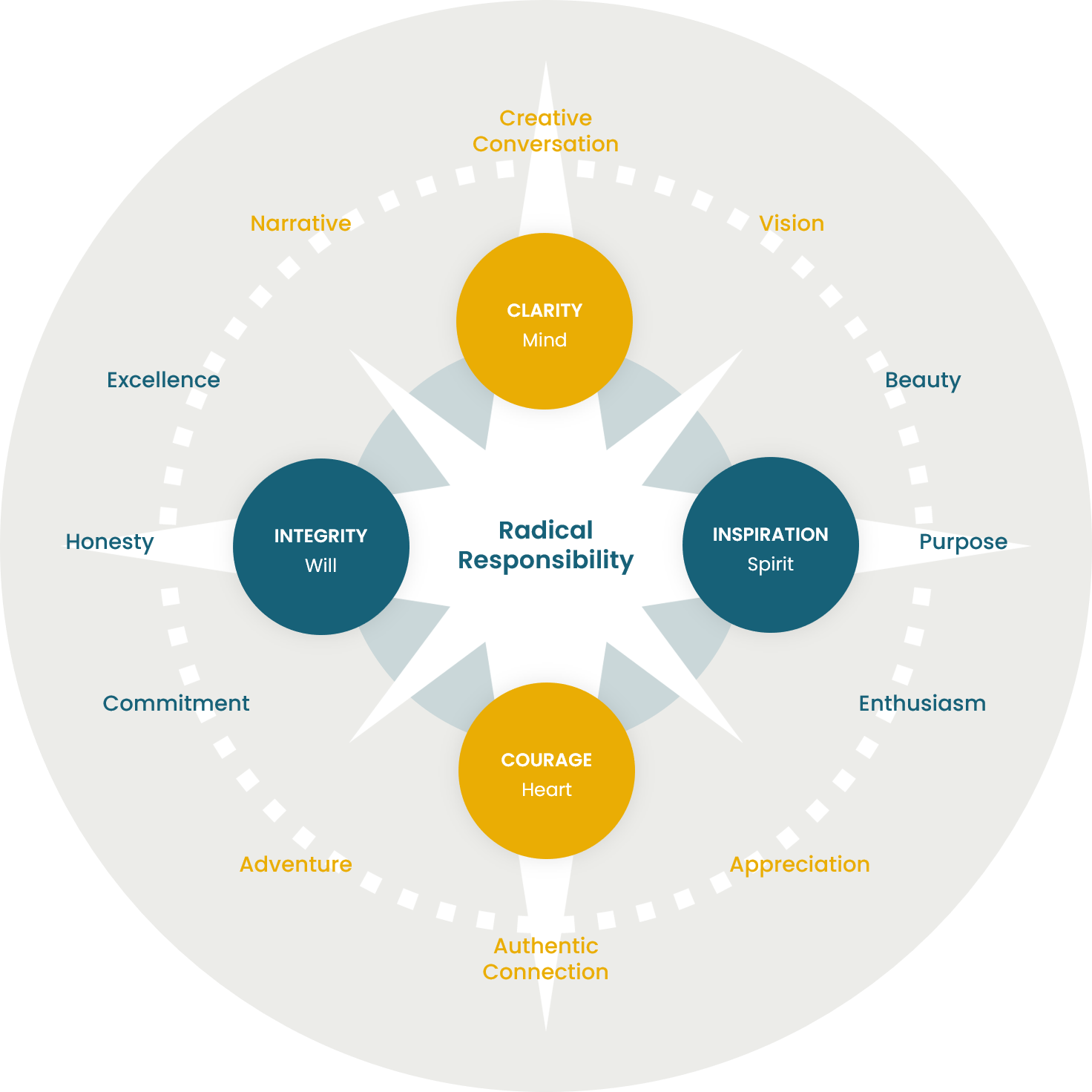The Power of Commitment
Commitment is one of the most powerfully creative forces in our lives.
It is a cornerstone of manifesting anything, and it is certainly at the center of being an inspiring and effective leader.
For many years, I held the notion of commitment as a measure of character—the more “committed” the better. But at some point, I realized that the idea of commitment is most powerful when it is used not as a tool to judge ourselves and others with, but instead as a tool of creation.
I believe there’s no such thing as committed people, and non-committed. Everyone is committed. We’re all demonstrating our commitment all the time. The relevant questions are to what are we committed, how do we and others know, and what are we creating out of our commitment.
The more conscious we can be—as leaders, family members, and members of society—about what we are committed to, and the more clearly we can communicate our commitments, the more effective we will be in all our endeavors and relationships.
Some aspects of commitment worth considering—that help us connect to it as a powerful agent in our lives….
Commitment is emboldening.
WWII-era Scottish mountaineer WH Murray wrote in describing the success of his Himalayan expedition, “Until one is committed, there is hesitancy, the chance to draw back, always ineffectiveness. Commitment is a kind of leap. It is jumping in with both feet—even with small things—versus dipping your toes in. It sets up a kind of internal attitude of going for it without a back door.
Commitment is an attractive force.
Murray goes on to say, “The moment one definitely commits oneself, then Providence moves too.” Way before the “laws of attraction” became popularized, Murray articulated a force in the universe—opportunity and support showing up when you signal your intent strongly enough.
Commitment brings clarity to relationship.
What’s most helpful about bringing commitment into relationship is not the general idea of being committed to someone, but the specifics of what exactly you are committed to in the relationship. Specific commitments clarify the relationship by clarifying the expectations in it.
Commitment is liberating.
It’s common to think of commitments as tying us down to something or someone. But perhaps worse than being harnessed to a commitment is being trapped in anxiety caused by vague expectations or unclear agreements. Thus the clarity of commitment frees up our energy to be used more productively.
Commitment isn’t always a yes.
Sometimes the most committed answer is no. Instead of saying yes, but secretly knowing it’s not going to happen, true commitment can be saying no. Or saying no to what someone is asking, or even to your own internal sense of “duty,” but yes to an alternative that actually works for you.
Commitment can be renegotiated.
We will all break commitments, or realize we can’t deliver on what we committed to. The question is whether we’ll make excuses, or we’ll own up to it and make amends or renegotiate the commitment.
Commitment is revealed.
So far, we’ve been looking at the power of commitment to drive our effectiveness. On the flip side, we can see how our effectiveness may reveal our commitments—in other words, how what we’re creating in our lives may reveal what we’re actually (and often subconsciously) committed to. For example, If I keep missing deadlines, it may reveal my actual commitment to something else, even though I say I’ll get the project done on time. And if I can’t seem to fit physical activity into my life, it’s likely I’m not as committed as I think I am to fitness. This notion that our results reveal our commitments can be quite confronting. No one wants to think that they’re failing at something because they’re committed to failure. But it can also be liberating, because it may inspire us to be more honest with ourselves about what’s most important to us, and empower us to be more closely aligned with that.
Questions to ponder, and if you like to write in a journal or on your computer, to write about…
Are there any commitments that you are making to yourself, or to others, that you’re having difficulty living up to? Could it be that there is something else you are actually, albeit subconsciously, more committed to?
Is there any project or goal that you’re having a hard time finding traction with, that upon reflection, you realize you are leaving a back door open with—in other words, are not fully committed to it?
Is there anything that you are currently saying yes to, that you actually need to say no to?
More in the Power Pathways Series…
The Power of Commitment is the eleventh in a series of posts exploring a compass-like wheel of twelve “power pathways”—avenues for expressing our power to be the creators and authors of our lives. Read the whole series here →
Here’s the full wheel, connected conceptually and practically to radical responsibility and the four disciplines of conscious leadership – inspiration, integrity, courage, and clarity.


